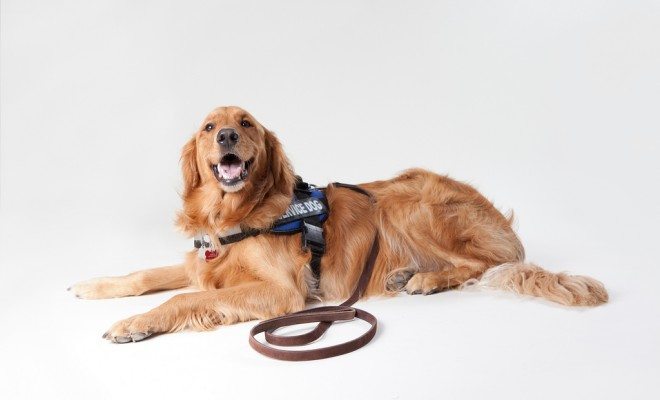
Blogs
Service Dog Scam Artists Coming to a Restaurant Near You
The first time I encountered a service dog I was working at a toy store in my hometown. She was an adorable English bulldog sporting a pink service dog vest. But to this day I still wonder if she was actually certified or not.
I wonder because many dog owners have taken it upon themselves to cheat the system by pretending their furry friends are service dogs, dressing them in service dog vests. The vests allow owners to bring their dogs almost anywhere, including restaurants, hotels, and airplanes. Take a look at this quick video testing the limits of service dog scamming:
The investigation, conducted by Local News 10 in Miami, shows how easy it is for dog owners to gain admission to restaurants by simply uttering the words “service dog.” The video features two citizens who use seeing-eye dogs; they are horrified by the scheming dog owners. But with fake certificates and vests obtained online, business owners can’t tell the difference and may face lawsuits if they ask more than the two questions outlined by the Americans with Disabilities Act:
- Is the dog a service animal required because of a disability?
- What work or task has the dog been trained to perform?
Because of these sneaky pet owners, people with disabilities who actually need the assistance of service dogs are facing the consequences. For example, seven-year-old Zachary Sorrells, who suffers from cerebral palsy and epilepsy, was not allowed to bring his service dog to school with him. The boy has been on seizure medication since he was 12 months old, but his service dog, Majesty, can detect seizures before he has them. With Majesty’s help, Zachary’s parents were able to wean him off the medication.
The Sorrells moved to Arkansas for a special children’s hospital for their son. When he began attending school in August, the Cabot School District told the family that Zachary could not bring Majesty to school with him. Later officials told the Sorrells that Majesty could accompany him with a handler present at all times. The handler would be an expensive burden on the family — $500 each month — so the Sorrells filed a complaint with the Office of Civil Rights.
An 8-year-old girl from Illinois is fighting a similar battle. Kellsey McGuire was diagnosed with epilepsy at 18 months old. Shortly after she began attending Sherrard Grade Day School in January 2014, Kellsey was forbidden to bring her service dog Jasper to school with her. In an interview with KWDC, Kellsey’s mother, Brandi, said her daughter has had up to 90 seizures in a day and Jasper helps them know when she is experiencing one. The family is currently seeking legal aid on the matter; their attorney says the school district violated the ADA.
Another large group of people who use service dogs are Veterans with PTSD and other disabilities. According to the U.S. Department of Veterans Affairs, service dogs and emotional support dogs may be helpful to those who have PTSD. The VA is currently conducting research “to determine if there are things a dog can do for a Veteran with PTSD that would qualify the animal as a Service Dog for PTSD.” Additionally, veterans who suffer physical injuries benefit from the assistance of trained service dogs in their day-to-day lives. Below is an image of Jeffrey Adams and his service dog Sharif, who responds to 40 different commands and carries out crucial tasks when he removes his prosthetic.
Would you continue cheating the system if you knew you were hurting the people who actually need their dogs for assistance in public places? I think it’s time for pet owners who selfishly dress their dogs in service vests to consider those who actually need service dogs. The ADA requires reform–the loophole is so large that anyone could label her dog a service dog. The government should crack down on the websites that provide fake certificates and vests for dogs.
Real service dogs take years to train; they respond to commands and help their owners with tasks from picking objects up to guiding their owners down the street. For some, their lives depend on their service dogs, and for others they rely on the dogs to complete tasks they could not otherwise complete. For the rest of the dog owners out there, keep your dogs where they belong and dress them how you like, so long as you stop mislabeling your pet as a service dog.
Featured image courtesy of [Found Animals Foundation via Flickr]








Comments